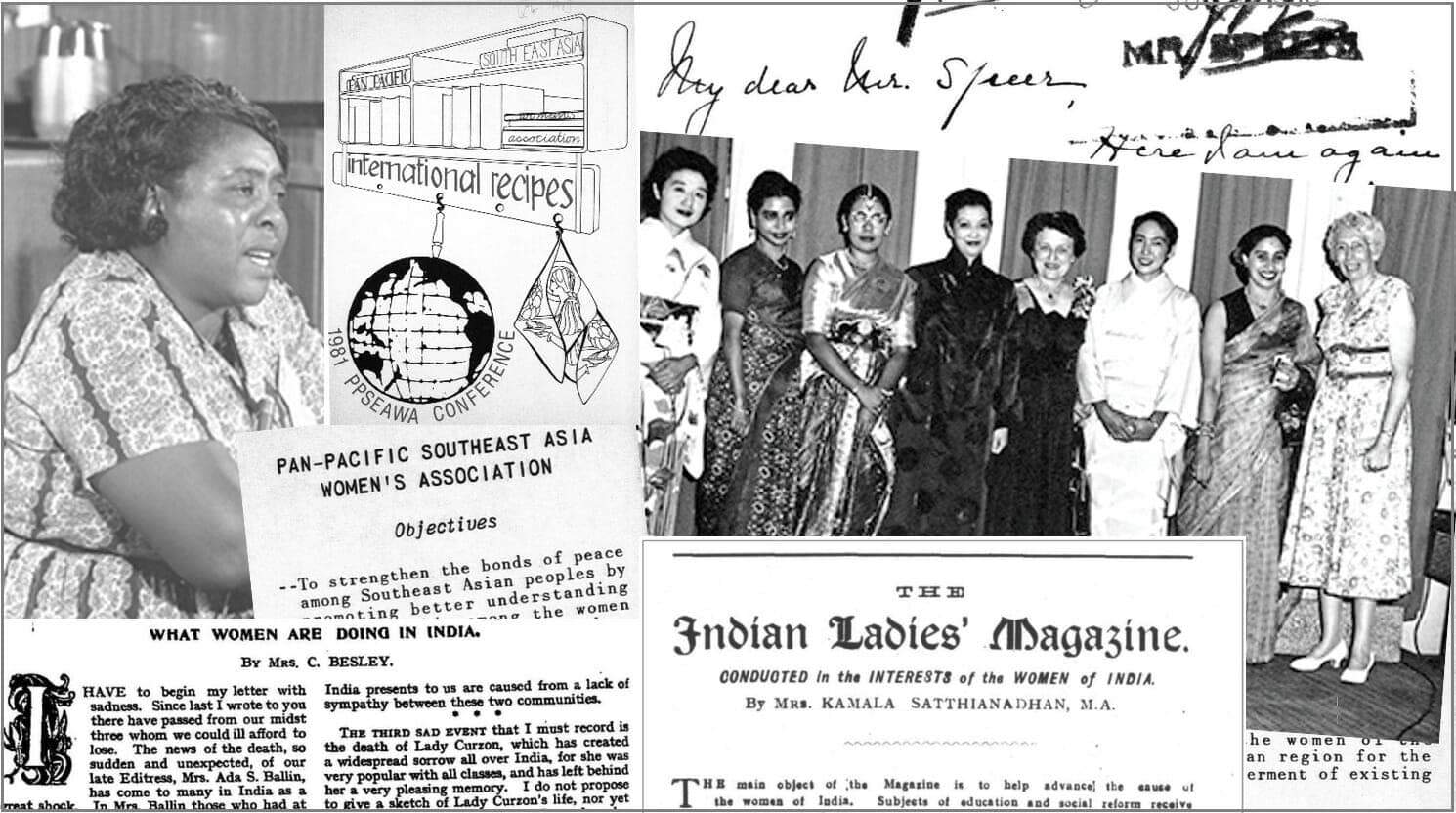│By Phoebe Sleeman, Gale Ambassador at Durham University│
As a historian, I have become increasingly aware of the power of archives to silence and oppress. Over the last few decades historians have been seeking to work against the grain of the traditional archive to uncover the agency of the oppressed, and some feminist historians have gone so far as to argue that an alternative female archive must be established. We are left at a crossroads, sceptical of archives but unable to escape the necessity of them. It is for this reason that I love Gale’s Archives Unbound. The very name indicates a freedom and an unbinding of those previously oppressed by the archive. Those oppressed by history are multifarious, and this blog post alone could not contain all their voices. My primary interest is in the agency of women within history which has often been oppressed within the archives, but Archives Unbound offers an opportunity for that to change. As such, this blog post is a journey through Archives Unbound to explore the agency of those previously overlooked by history.
The International Women’s Movement: The Pan Pacific/Southeast Asia Women’s Association, 1950-1985
One collection within Archives Unbound contains materials from the Pan Pacific/Southeast Asia Women’s Association (PPSEAWA). This is an international organisation run for and by women across the world. The PPSAWA describe their objectives as:
‘To strengthen the bonds of peace among Southeast Asian peoples promoting better understanding and friendship among the women of all Pacific countries; and to initiate and promote cooperation among the women of the Southeast Asian region for the study and betterment of existing conditions.’
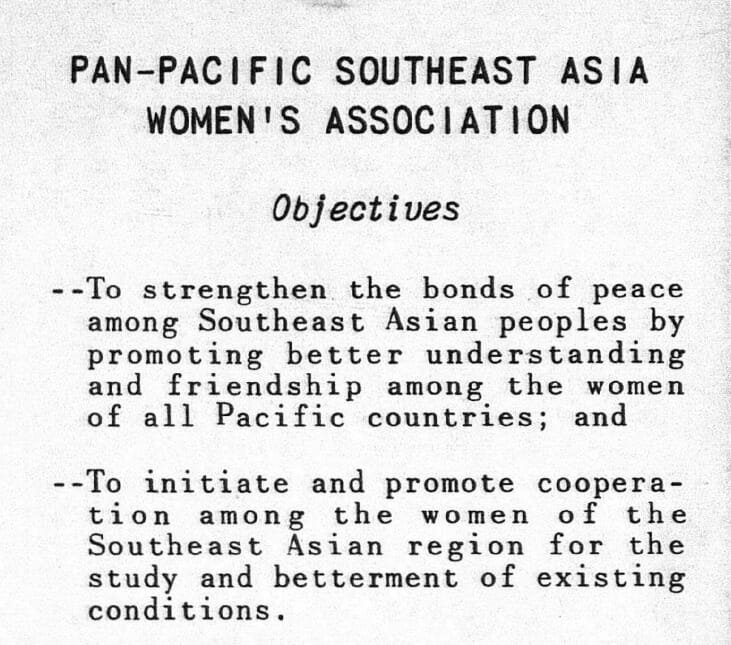
This collection within Archives Unbound offers a valuable insight into the work of the organisation, for example, they published an international cookbook in 1981. The organisation clearly emerged within the movement of second wave feminism. Whereas first wave feminism had focused almost exclusively on the rights of elite white Western women, second wave feminism sought to amend this. The image below highlights the diversity of those who attended the PPSEAWA conferences.
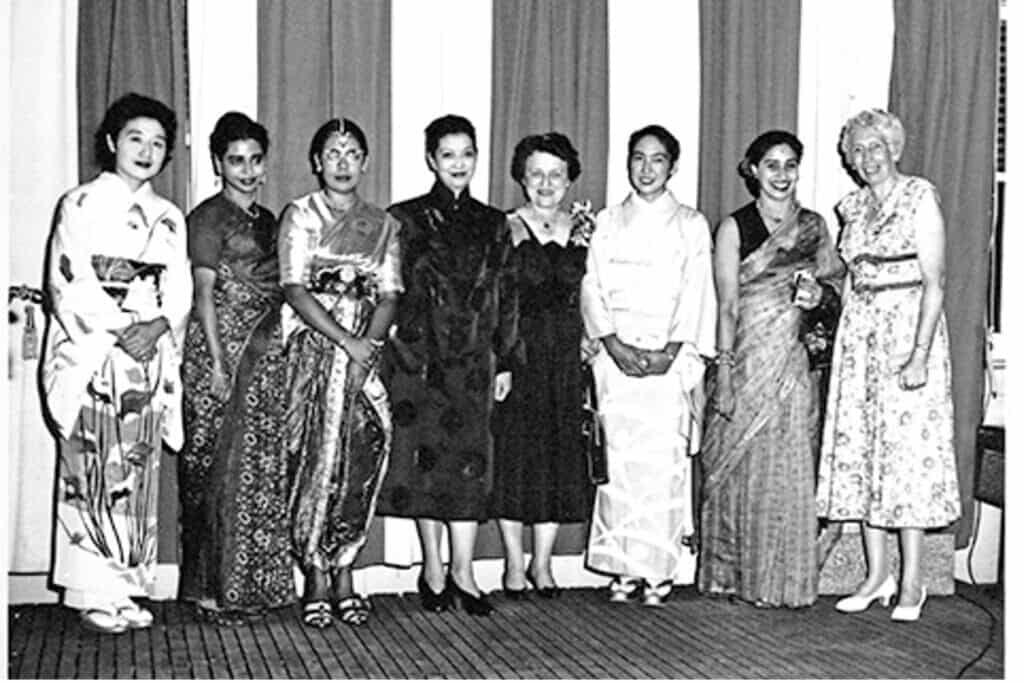
Photo reference: Series I. History And Administration: Event Programs And Invitations, 1957-1979. 1957 – 1979. MS The International Women’s Movement: The Pan Pacific/Southeast Asia Women’s Association, 1950-1985. Sophia Smith Collection, Smith College Library. Archives Unbound, https://link.gale.com/apps/doc/SC5103846126/GDSC?u=virta&sid=bookmark-GDSC&xid=a9a40000&pg=4
Photo details, including guest names: Series I. History And Administration: Event Programs And Invitations, 1957-1979. 1957 – 1979. MS The International Women’s Movement: The Pan Pacific/Southeast Asia Women’s Association, 1950-1985. Sophia Smith Collection, Smith College Library. Archives Unbound, https://link.gale.com/apps/doc/SC5103846126/GDSC?u=virta&sid=bookmark-GDSC&xid=a9a40000&pg=5
However, photographs can be misleading (check out my blog post on photographic histories for more information), and the work of the PPSEAWA was primarily through their meetings where women from across the world could come together to raise awareness and information about issues they were facing. However, most of these meetings were held in America, so the women who attended would have had a certain level of wealth which enabled them to travel. We must therefore dive further into Archives Unbound to uncover the agency of non-elitist women.
Fannie Lou Hamer: Papers of a Civil Rights Activist, Political Activist, and Women
Fannie Lou Hamer was born to sharecroppers and spent almost two decades working on the Dee Marlow plantation in Mississippi. Hamer was the victim of major racial hurt. As Archives Unbound highlights, she was unknowingly and non-consensually sterilised in 1961 as part of a state ‘plan to reduce the number of poor blacks’ in Mississippi.1 A year later, she was fired from her sharecropping job for registering to vote. Devastatingly, this was most likely the story of many young black American women, but Harmer decided to do something about it. Inspired by her Christian faith, she helped establish the Delta Ministry, the leading organisation in Mississippi’s fight for racial equality and she also helped found the Mississippi Freedom Democratic Party.
Although her formal education did not go past primary school, Hamer fought against all odds, against the oppression of her agency. Her voice was vital in the local civil rights cause within Mississippi and through the Archives Unbound collection, her voice continues to be heard. Hamer was not a wealthy elite woman as those within the PPSEAWA most likely were, and yet her agency and importance within the civil rights movement in clear.
This collection within Archives Unbound highlights the importance of microhistory in uncovering the agency of the oppressed. Microhistory is the study of an individual or a locality at a set point in time to uncover broader societal and cultural patterns and movements. This collection includes more than three thousand pieces of correspondence plus financial records, programs, photographs, newspaper articles. Why not check it out to find out more about this incredible woman?
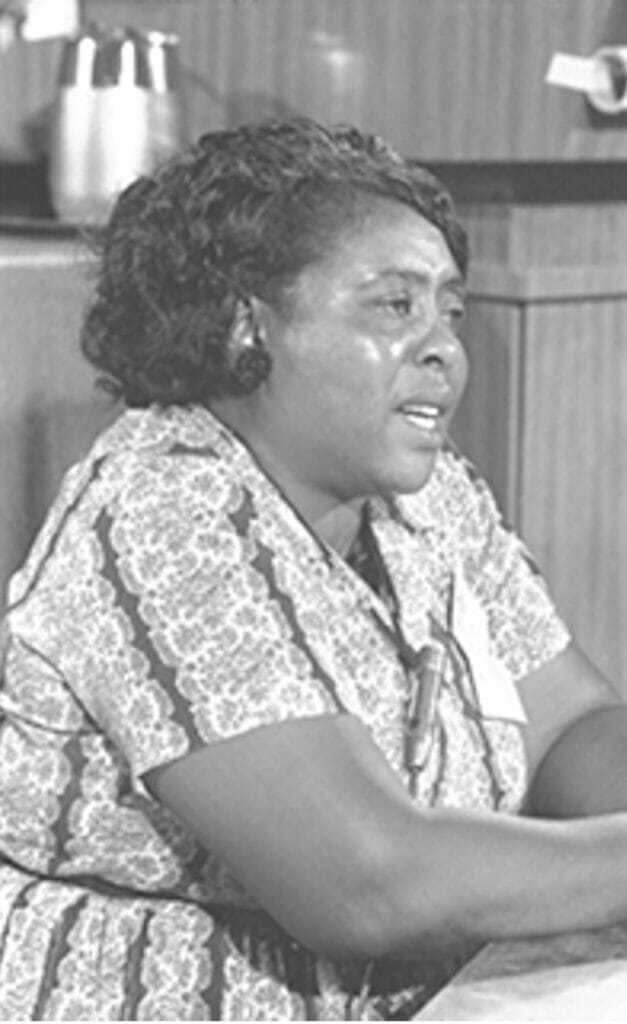
Image from the Library of Congress: https://www.loc.gov/pictures/item/2003688126/
Indian Women Hidden Within Archives Unbound
My particular area of research in my final year of undergraduate study has been Indian Christian Women during the British colonial period. These women have been thrice occluded: as Indian during an imperial regime, as women under both the British and Indian patriarchy, and as Christian where nationalist historiography has ignored them, and missionary historiography has at times limited their personal agency. Searching for the agency of these women within the Archives Unbound series offers another way of exploring the agency of the oppressed.
Rather than having a dedicated collection within Archives Unbound, traces of these women’s legacies must be found across collections. The India Magazine, June 1916, found in the ‘Women, War and Society’ collection, introduces The Indian Ladies’ Magazine written by Kamala Satthianadhan, an Indian Christian woman.
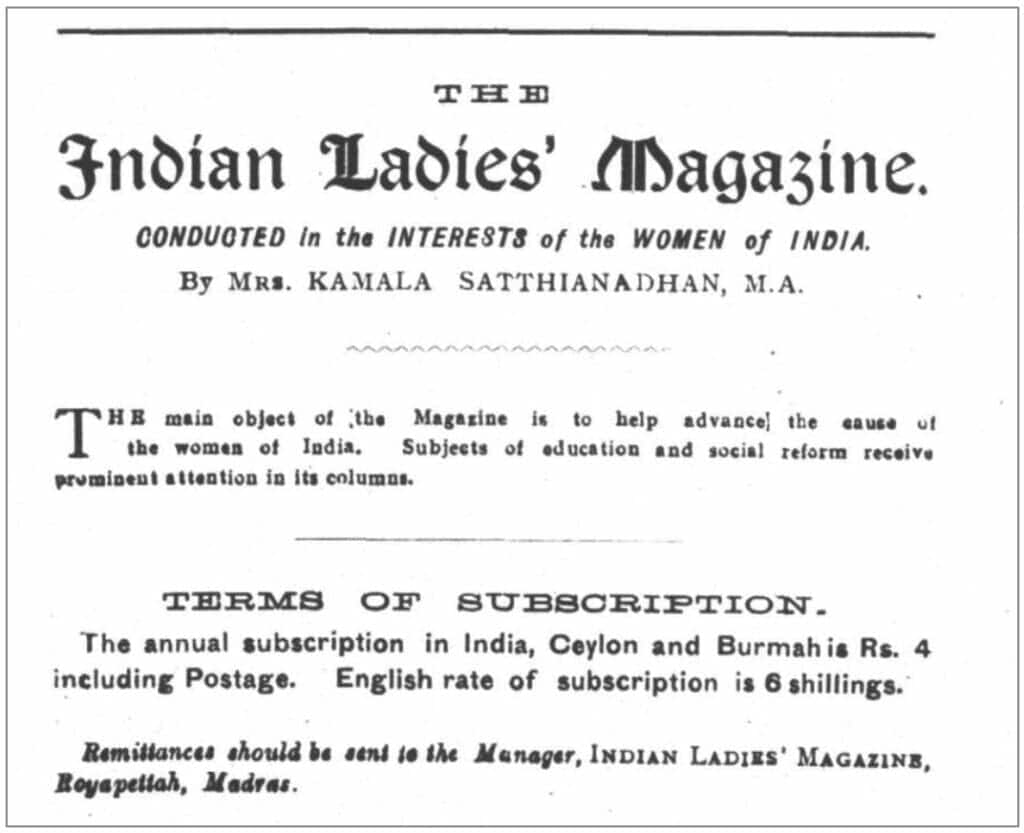
Although, The Indian Ladies’ Magazine is not included in full within Archives Unbound, it is regularly mentioned in Mrs Besley’s ‘What Women are Doing in India’ column in Womanhood. This in itself is of note as it indicates a wider network of women, amplifying each other’s voices. This can also be seen in missionary letters, such as that from Alice Giles. In it she names two Indian Christian women, Manorambai who travelled to Australia, and Pandita Ramabai who was vital in the revival that flowed throughout her school for Indian girls and widows. Despite not speaking directly in Archives Unbound, their agency can still be found through the amplifying of their voices and actions by other women around them.
An Opportunity to Explore the Agency of the Oppressed
Archives Unbound offers an incredible opportunity to explore the agency of the oppressed. This blog has sought to show some ways that this can begin to be done, but it has only scratched the surface. Why not dive into Archives Unbound yourself to uncover more voices that have historically been oppressed?
If you enjoyed reading about finding the voice and agency of the oppressed within archives, check out:
- How Slave Narratives Give Voice to the Enslaved
- “Power to all the people or to none”: Grassroots activism in amateur publications written by women, African Americans and the LGBT+ community
- Lesser-Known Narratives and Everyday Histories in Archives Unbound
- Decolonization: Politics and Independence in Former Colonial and Commonwealth Territories
- Peyote Rights, Religious Freedom and Indigenous Persecution in the Women’s Missionary Advocate Papers
- Decolonising the Curriculum with Archives Unbound

